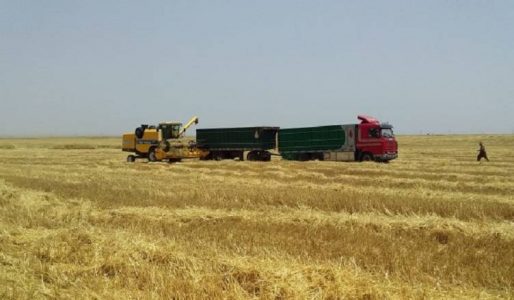
The Islamic State caused 40 percent drop in the Iraqi agriculture
As a result of the Islamic State’s 2014 rise in Iraq, the nation’s agriculture production decreased a drastic 40 percent, especially the northern province of Nineveh governorate, according to a new report.
The International Organization for Migration (IOM) made the claim on Friday in a published assessment of Iraq’s agriculture sector from 2014 to 2017, entitled, “After ISIL, Agricultural Production Struggles to Recover in Parts of Iraq.”
“It is necessary to prioritize the recovery and development of rural areas as part of our reconstruction and stabilization efforts,” said Siobhan Simojoki, Head of IOM Iraq’s Community Stabilization Unit.
She added, “Agriculture should be considered as an essential facet of the stabilization process and focus on this area can help balance out longstanding rural-urban economic inequalities.”
The report also mentioned that the extremist organization “purposely targeted rural areas for strategic purposes and access to their steady food supply and the option to sell off agricultural produce for financial gain,” furthermore destroying the lands.
According to the report, Nineveh, previously leading the nation in wheat and barley production, has seen the most damage in the aftermath of the fight against the Islamic State.
“Almost two years after the military defeat of ISIL in Iraq, livestock are still missing in Nineveh, agricultural lands remain contaminated with explosives, and necessary machinery is lost or destroyed.”
Mosul, the second-largest city in Iraq, was quick to fall into the hands of the Islamic State following the group’s emergence in 2014. Some believe economic deterioration, mistreatment from the Iraqi army, and neglect from the central government were all key factors in the city’s rapid capture.
IOM has more than 1,400 staff members based in Baghdad, Erbil, Basra and various other cities in the country who are, as the organization writes, are “dedicated to improving the conditions of the displaced and to working with local host communities.”
Source: Kurdistan 24





